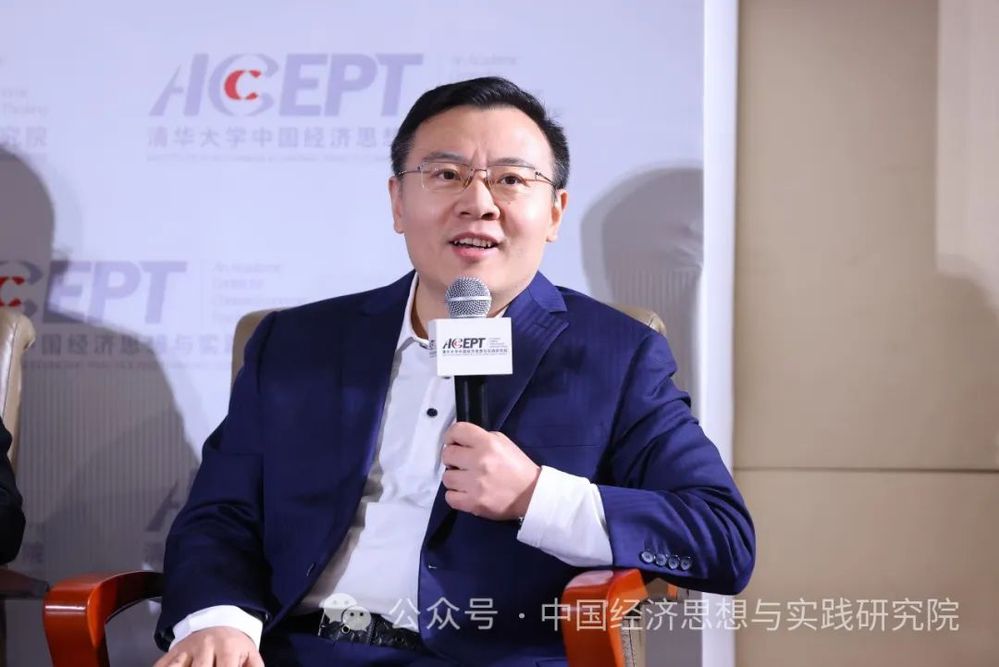Ren Zeping: Chinese enterprises enjoy advantages in overseas expansion, public policies must move rapidly to address population problem
The following is a summary of Ren Zeping's comments during a roundtable discussion at the 46th Tsinghua University Forum on China and the World Economy held at Tsinghua University, Beijing, on January 8, 2024. Ren is an Economist and Founder of Zeping Macro, former Vice President and Chief Economist of China Evergrande Group, and former Economist of the Development Research Center of the State Council.
On January 8, 2024, the 46th Tsinghua University Forum of China and the World Economy, hosted by Tsinghua University's Academic Center for Chinese Economic Practice and Thinking (ACCEPT) in partnership with the university's School of Social Sciences and School of Economics and Management Alumni Center, was held on campus. Economist and Founder of Zeping Macro, former Vice President and Chief Economist of China Evergrande Group, and former Economist of the Development Research Center of the State Council, Ren Zeping, participated in a roundtable discussion at the forum alongside other distinguished guests where he commented on the future outlook for China's economic development.

On January 8, 2024, the 46th Tsinghua University Forum of China and the World Economy was held inside the Weilun Building's main lecture hall on campus at Tsinghua University's School of Economics and Management. The biannual event was hosted by Tsinghua University's Academic Center for Chinese Economic Practice and Thinking (ACCEPT) under the theme of China's 2024 Economic Outlook. During the forum's proceedings, Ren Zeping, Economist and Founder of Zeping Macro, former Vice President and Chief Economist of China Evergrande Group, and former Economist of the Development Research Center of the State Council, participated in a roundtable discussion alongside other distinguished guests where he commented on the future outlook for China's economic development.
Ren summarized the successful experiences of Chinese enterprises that have expanded into markets overseas into three points: first, is the enterprising spirit and the hard-work mentality of the entrepreneurs; second, their strong advantages in terms of supply chains and the commanding cost performance of their products; and third, the launch of new varieties of consumer goods. To start with, these consumer good varieties can mainly be categorized into either conspicuous consumption or functional consumption: conspicuous consumption is meant to please others' needs, which for the most part refers to luxury goods, while functional consumption is meant to satisfy one's own needs, focusing on goods that offer a high cost performance, and those goods that are enjoyable, good-looking, and easy to use, which are typically targeted towards a younger group of consumers.
He explained that the current overall environment facing China can mainly characterized by way of the following two distinctive features: first, globalization is now facing headwinds, with the world's demand for goods “Made in China” having therefore undergone a contraction, resulting in the scaling down of production capacity, and with overseas expansion meanwhile having become a critical alternative growth channel; and second, the era of China's rapid economic growth and large-scale real estate development benefited from the baby boom and the urbanization of large numbers of migrant workers in the 1960s and 1970s. China's current urbanization rate is 66%, and there is still room for a further increase of 10-15 percentage points in the future, although this process has slowed down to a great extent. As far as the second point is concerned, Ren believes that the issue concerning the mismatch between residents and geography in the economy can be solved. Onward migration to metropolitan areas is a common phenomenon observed in developing countries everywhere around the world. Urban communities are more dynamic and well-organized, making more efficient use of land and a wide range of other resources. The restrictions placed on the expansion of large cities and the development of smaller and medium-sized cities has to a certain extent led to higher housing prices in first- and second-tier cities as well as the larger inventories in third- and fourth-tier cities. Thus, this issue cannot simply be attributed to inflated housing prices or the public administration of land finance, with land-based finance and capital infrastructure in fact having played a very indispensable role.




